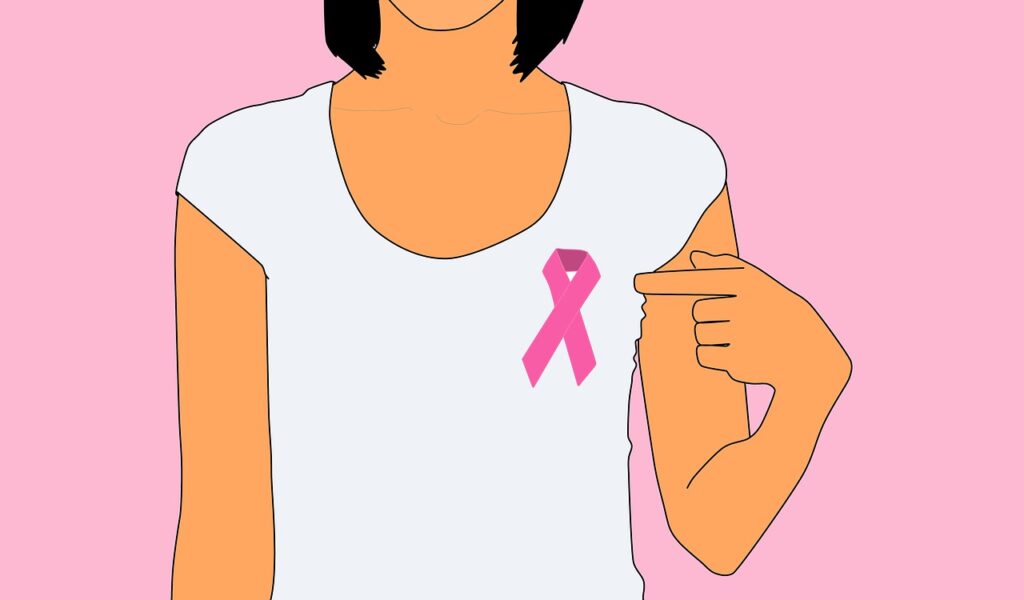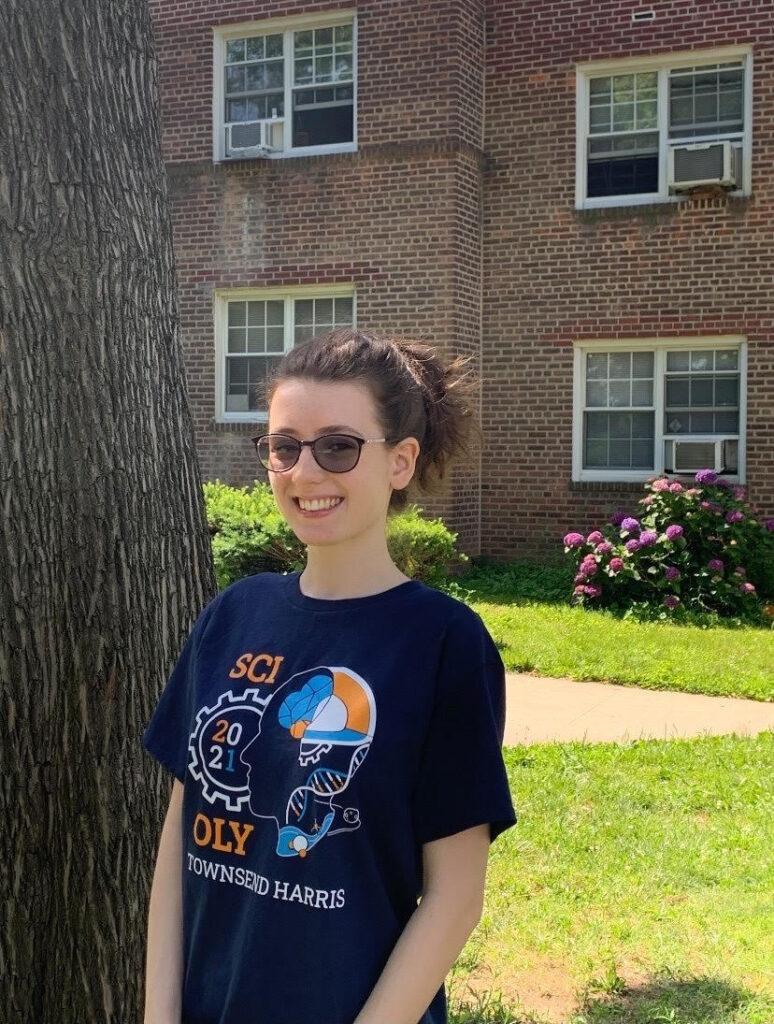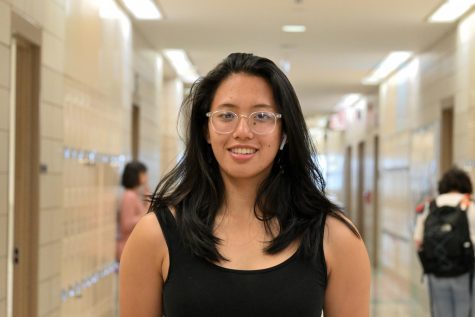
Juniors Sai Choudari and Asha Suganthan excitedly entered the second year of their science research course, having acquired a heightened zeal for science in their first year. There was one notable difference, however. While their ability to explore scientific fields was limited in year one, the pair said, year two offered full autonomous initiative in pursuing individual research that catered to personal interests.
While searching for possible research topics, they uncovered the expansive study of breast cancer. Although there are a great number of studies focusing on possible treatment avenues, Sai said she realized there wasn’t much on the “patient and their journey with cancer.”
According to the National Breast Cancer Foundation, one in eight women in the United States are projected to develop breast cancer once in their lifetime; it is also the most common cancer in women, besides skin cancer. As reported by the American Society of Clinical Oncology’s patient information site, there are currently around 3.8 million women diagnosed with breast cancer in the United States.
Being diagnosed can invoke fear and stress, the uncertainty of the situation often being an overwhelming ordeal. Diagnosed patients often have to undergo the harrowing process of wondering what the next steps will be, if they can afford treatment, or how their life will proceed from there on out. Not only that, they will have to deal with pain from the chosen treatment or the swelling in their breasts. Surviving cancer is a daunting and draining hardship, both physically and emotionally.
In light of this, Sai and Asha aimed to use narrative research to provide emotional guidance to breast cancer patients and their families, as well as clinicians, a process which they found to be both inspiring and fulfilling. Narrative research gleans interpretations from any form of expression, should it be words, representation, or behavior. Typically, it is based on stories and experiences, and developed into quantitative data to conceptualize human experiences.
“By taking the patient’s narratives into consideration, it gives medical experts and the families of breast cancer patients a more personal insight into what the journey is like, allowing for them to provide the best support, relief, treatment processes, and more,” Asha said.
The two are currently working on a study titled “Narrative Research and Breast Cancer.” The project studies the experiences of women who have or have had breast cancer. They analyzed the stories of 40 women of all ages and stages worldwide, and compared the experiences within the generational divide of their patient pool.
“Previous research on breast cancer largely consisted of medical studies done on the successes of treatments and possible cures, however not much research addresses the patient and their journey with cancer,” Sai said. “Our study wants to explore this experience as qualitative data, in order to provide both patients and clinicians information on coping with the diagnosis and treatment of breast cancer.”
Asha introduced the idea after discovering a publication by Dr. Janine Overcash about how narrative research could be used to understand how elderly patients are affected by a breast cancer diagnosis. “This caught my eye because it was interesting to see how qualitative information could be converted into quantitative research to improve the breast cancer experience and highlight the common concerns that many patients face,” Asha said. She eventually reached out to Dr. Overcash and successfully acquired her as their mentor.
Dr. Overcash is a Professor of Clinical Nursing at Ohio State University. She specializes in geriatric oncology, working as a nurse with older cancer patients, and has written over fifty related peer-reviewed journal articles. Many of her penned papers adopt a narrative research methodology.
According to Sai, Dr. Overcash was the one who “truly inspired” her to take on this type of project. “Our mentor has been a guiding light throughout our project. She had helped us navigate the narrative research method, as we were both quite new to it. She would help us plan and outline. We were able to bounce ideas off of her, and overall was great support,” she said.
When it came time to execute their research, they were presented with a challenge: Given that the research was carried out remotely, Sai and Asha were unable to conduct live interviews. Instead, they had to hunt for narratives online.
“For the first months, all we did was skim the web for blogs and breast cancer support groups. Our mentors suggested a few, but they didn’t fit our criteria,”said Sai.
Fortunately after days of searching, their efforts prevailed. They found a blog on Healthtalk.org, a website run by the UK-based charity Database of Individual Patients’ Experiences (DIPEx), which provided them with the public interviews they needed.
The DIPEx charity works with the Health Experience Research Group at the University of Oxford to provide in depth information about medical conditions based on personal research interviews. Over time, it has grown into DIPEx International (DI), with academic partners in more than 10 countries. The vividness of these stories breathed life into their project.
“Each woman had a unique story that was so rich with emotion that it inspired me to share these stories,” said Sai.
Using DIPEx’s reservoir of interviews, they compared the narratives of women under 50 to those 50 and over. They then further organized the personal accounts into two categories: early vs late stage breast cancer. The first category was composed of patients diagnosed with Ductal Carcinoma in Situ (DCIS), meaning abnormal cell growth lining the milk ducts of the breast is identified to be cancerous but stationary. The second category included patients whose breast cancers were metastatic, that is to say, their cancer was spreading to areas other than its initial area of formation.
Asha and Sai ultimately identified nine variables to consider in their study: religion, physician trust, pain, positive attitude, caregiver to others, body image, alteration in lifestyle, grief and discomfort. They were able to convert the qualitative data into quantitative data by creating frequency charts, bar graphs and a word cloud.
By ascertaining common themes in the DCIS survivors, they found that older women had a proclivity towards discussing grief, pain, and self esteem. Younger patients, on the other hand, chiefly expressed concerns regarding their children and pre-existing health conditions. Although not yet completed, Sai and Asha said their research already shows promising results.
Sai said, “There’s a certain stereotype or common belief that cancer patients have to feel a certain way, and we tend to not look past that. However, this study really highlighted just how great our emotions can be. Not everyone feels the same way, and someone’s circumstances can change drastically their outlooks/experiences.”
As Sai and Asha continue to further analyze breast cancer patient narratives, they hope that their conclusions will help oncologists identify the concerns present in the narrative research so that they can provide support and relief to their patients. The results could also help patients convey their emotions, as well as give some comfort in knowing there are others who have shared their dilemmas.
“Our research could possibly help breast cancer patients, their families and even clinicians understand the effects of breast cancer diagnosis. It could help them anticipate certain emotions, or feelings and help prepare families and clinicians for the possible outcomes of the diagnosis,” Sai said.
Sai added, “It also was suggested by a peer that we should look into how past experiences or beliefs about breast cancer shaped one’s journey, so that was something I’m looking to explore moving forward.” In the future, Sai and Asha hope to conduct live interviews and continue their use of narrative research. They are currently working towards publication of their research paper this summer.
Reflecting on the research project, Asha said,“I am proud of this study because I explored a research topic that serves potential implications for improving breast cancer patients’ experiences. One’s cancer journey can be stressful and difficult, so I am grateful to engage in research that can have a positive impact on their care.”


































